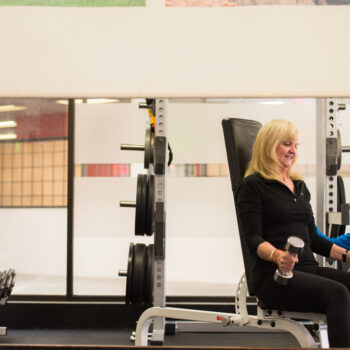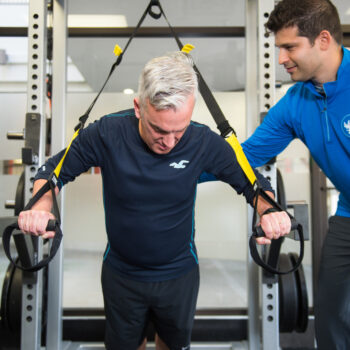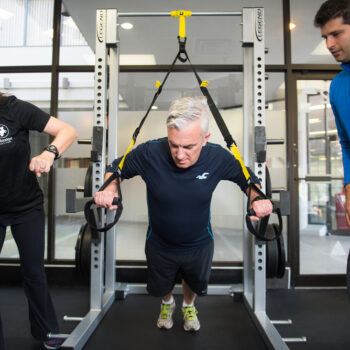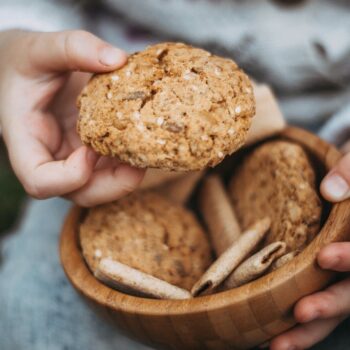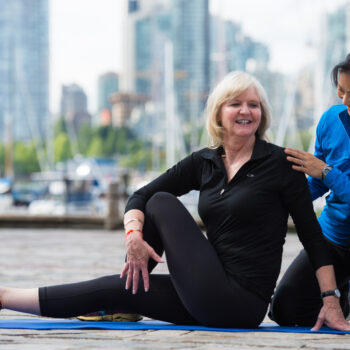You can’t get away from the fact that we are a coffee-inundated society. In Vancouver, you will see everything from a Starbucks, to Cafe Artigiano, to Blenz, to Waves to Timmy’s on every street corner and block (and I’m probably missing a few good names too – sorry!). We “catch up over a coffee” and order things like “double-doubles” or beverages that have a secret ancient Chinese and Latin code words like “venti, grande, half sweet, low fat, macciatto, fair-trade, double pump, no whip, organic, soy, a bit of room and dry” (hopefully not in the same breath), and some of us just do it black. It’s a real culture (and science), this coffee stuff!
Here’s a very cool, quick video on how coffee affects your brain
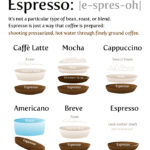
What are the benefits of coffee?
I think I’m preaching to the choir when I list the benefits of coffee, because chances are, you’re not reading this because you’re trying to convince a friend that your habit is healthy and these are the logical, scientific reasons why they should also partake. But I’m going to list them anyways, because I’m scientific like that.
Studies show, at different intake levels, depending on whether you are a man or woman, and what part of the world you live in, the benefits of coffee may be as follows:
* Reduced risk of Alzheimer’s disease and Dementia
* Reduced risk of gallstone disease
* Reduced risk of Parkinson’s disease
* Increased Cognitive performance
* Caffeine and analgesics – increased effectiveness of some painkillers
* Anti-diabetic effects
* Liver protection
* Correlation to reduced risk of some Cancers
* Cardio-protective effects
* Laxative/diuretic
* Antioxidant properties
* Prevention of dental cavities
* Reduced risk of Gout
* Inverse association with consumption and high Blood pressure
* And my favourite – training effects
Okay, so if I’m not here to talk about how amazing coffee is, then obviously I’m going to talk about how bad it is…right?
Is coffee bad for me?
Science also shows us that the risks associated with coffee consumption (long term and short term, and again depending on whether you are a man or a woman, age and where you live) are as follows:
* Caffeine dependency
* Some carcinogens found in roasted coffee
* Gastrointestinal problems such as gastritis and ulcers
* Psychological effects (anxiety, irritability)
* Disruption to your sleep pattern (insomnia is really horrible, if you haven’t experienced it. Just saying.)
* Possible link to increased cholesterol (LDL or low-density-lipoprotein…the “bad” one) levels
* Possible link to increased blood pressure (I believe the jury is still out on this one)
* Risks associated with pregnancy on the developing baby (their undeveloped organs have difficulty processing the chemicals in coffee, plus the dosage amount relative to their body size)
* Development of iron-deficiency anemia in women
* Possible association with increased incidence of coronary artery disease
* Interactions with some medications (such as pain killers) may damage the liver
 Please keep in mind, that we can find studies proving and disproving almost everything, so what is the truth? I’ve tried to keep the relevance here on COFFEE drinking, versus focusing on caffeine (since caffeine is found in many consumed items or you can purchase decaf; whether you do it the chemically processed way or Swiss water is a different matter…but that is another blog).
Please keep in mind, that we can find studies proving and disproving almost everything, so what is the truth? I’ve tried to keep the relevance here on COFFEE drinking, versus focusing on caffeine (since caffeine is found in many consumed items or you can purchase decaf; whether you do it the chemically processed way or Swiss water is a different matter…but that is another blog).
Take heart, I am not here to crush your coffee dreams of achieving “customer of the year” status at your favourite coffee shop. Andrina Tisi, of Wholelicious says that, as a believer in moderation, having coffee once in a while is fine! “Many people just drink too much coffee, plus they add lots of cream and sugar and become addicted to it. Often people feel that they need coffee to wake up where in fact once they are off coffee and through the initial detoxification process (which can be quite intense) they will have more energy.”
If you feel you must absolutely have your coffee, but are concerned about the health benefits, Andrina suggests some great alternatives:
Teeccino; it’s made out of carob, barley, Chicory root, dates, figs, ramon seeds, almonds and dandelion roots. It comes in different flavors like hazelnut and mocha.
Krakus; made out of extracts of roasted barley, rye, chicory and beet roots.
Bambu, the ingredients are similar: Chicory, malted barley, wheat, acorns and figs
For myself, I find that it’s not so much the coffee that I am addicted to, but the “ritual” around getting out of the office, chatting up with my favourite baristas and the 20 – 30 minutes to decompress in the warmth of the coffee shop, taking in the sounds of clinking cups on saucers, conversation and laughter of people around me and the whirring machines. My naturopath strongly recommended I stay away from coffee and caffeine, despite my chronic fatigue (darnit!), so now I enjoy a good cup of vanilla rooibos tea with a touch of honey, or earl grey with soy. Mmmm, bergamont.
It’s all about choice and being educated about the decisions you make. While I enjoy a great pumpkin spice latte, or peppermint mocha with soy, every now and then, (and real coffee drinkers will tell me that this is NOT a real coffee…it’s mostly sugar, which is true), I am thankful for coffee alternatives like tea (if you ARE avoiding caffeine, be aware that hot chocolates and green tea matcha lattes are not caffeine-free).
 So is coffee good for you or bad for your health? Moderation my friends! It’s a balance of finding enjoyment in what you eat and drink, acknowledging your choices, being educated to make the right decisions and making your health a priority. There is a world of great drinks out there, beyond sort of burned coffee beans, so go explore and have fun!
So is coffee good for you or bad for your health? Moderation my friends! It’s a balance of finding enjoyment in what you eat and drink, acknowledging your choices, being educated to make the right decisions and making your health a priority. There is a world of great drinks out there, beyond sort of burned coffee beans, so go explore and have fun!


